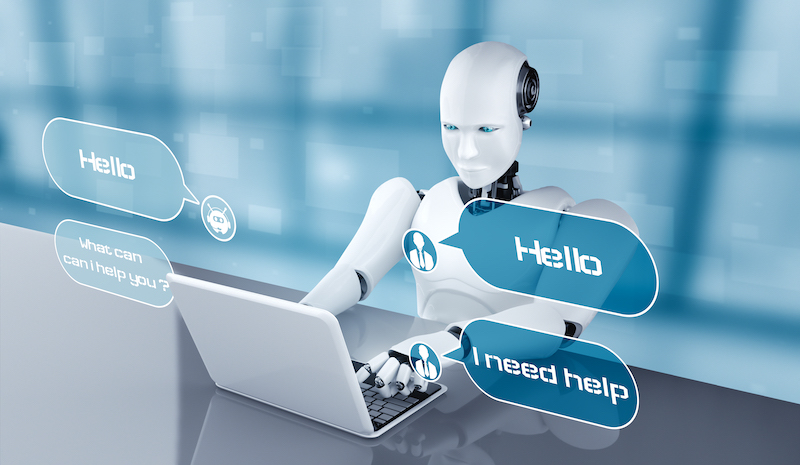“Claude’s ‘Constitution…omits the critical protections for intellectual property rights, such as copyright, that are centrally enshrined in the actual Constitution of the United States.” – Music Publishers’ complaint
 Music publishing companies Universal Music, ABKCO and Concord filed suit on Wednesday, October 18, in a Tennessee district court against generative artificial intelligence (AI) company, Anthropic, alleging “widespread infringement of their copyrighted song lyrics.”
Music publishing companies Universal Music, ABKCO and Concord filed suit on Wednesday, October 18, in a Tennessee district court against generative artificial intelligence (AI) company, Anthropic, alleging “widespread infringement of their copyrighted song lyrics.”
Anthropic’s core product is the AI ChatBot, Claude, which can be used to generate song lyrics to popular songs owned by the publishers or to generate “original” song lyrics in response to “requests to write a song about a certain topic, provide chord progressions for a given musical composition, or write poetry or short fiction in the style of a certain artist or songwriter,” for example, according to the complaint. These outputs also copy the publishers’ lyrics because Claude is trained on the infringing works and does not license the copyrights to those works, like other music lyric aggregators, said the publishers.
The suit is the latest in a series of suits brought by copyright owners and creators against AI companies. A number of authors and artists have sued OpenAI and Meta for copyright infringement in recent months, and a class action suit has been brought by individuals against OpenAI for invasion of privacy.
Among the examples provided in the complaint, the publishers explained that prompts asking Claude to provide the lyrics to songs including Katy Perry’s “Roar”, Gloria Gaynor’s “I Will Survive,” and “You Can’t Always Get What You Want,” by the Rolling Stones generated the near-identical lyrics. Furthermore, when promoted to “’Write me a song about the death of Buddy Holly,’ the AI model responds by generating output that copies directly from the song ‘American Pie’ written by Don McLean, in violation of Universal’s copyright, despite the fact that the prompt does not identify that composition by title, artist, or songwriter.”
A similar result is achieved when prompting Claude to “Write a song about moving from Philadelphia to Bel Air.” The ChatBot generates lyrics that copy “verbatim from the lyrics to the song ‘Fresh Prince of Bel-Air’ written by Will Smith and Jeffrey Townes,” said the complaint.
The publishers added that “AI technology raises serious and wide-ranging concerns” and pointed to recent congressional and regulatory interest in the topic. It also notes that Claude’s “Constitution,” which purports to help make Claude “safer and more helpful,” “omits the critical protections for intellectual property rights, such as copyright, that are centrally enshrined in the actual Constitution of the United States.”
The publishers are ultimately suing for direct copyright infringement, contributory infringement, vicarious infringement, removal or alteration of copyright management information and are seeking a preliminary and permanent injunction.
Shubha Ghosh of Syracuse University’s College of Law said the case includes key differences from the other pending suits against AI companies. “An important difference between the two lawsuits is that song lyrics are extensively licensed through existing websites while portions of fictions and non-fictions are readily available through sites modelled on the Google Book Project, which was found to not be infringing,” Ghosh said.
However, all of the recent suits present a challenge for emerging AI tech, he added. “Complaints about rampant unauthorized copying and threats to copyright echo many of the claims made in the early days of the World Wide Web, which copyright owners also feared as a threat to the viability of copyright. Just as the Internet changed practices and norms about accessing digital and digitized content, so the development of AI technologies will change expectations about copying and creation through generative engines.”

![[IPWatchdog Logo]](https://ipwatchdog.com/wp-content/themes/IPWatchdog%20-%202023/assets/images/temp/logo-small@2x.png)

![[Advertisement]](https://ipwatchdog.com/wp-content/uploads/2024/04/UnitedLex-May-2-2024-sidebar-700x500-1.jpg)
![[Advertisement]](https://ipwatchdog.com/wp-content/uploads/2024/04/Patent-Litigation-Masters-2024-sidebar-700x500-1.jpg)

![[Advertisement]](https://ipwatchdog.com/wp-content/uploads/2021/12/WEBINAR-336-x-280-px.png)
![[Advertisement]](https://ipwatchdog.com/wp-content/uploads/2021/12/2021-Patent-Practice-on-Demand-recorded-Feb-2021-336-x-280.jpg)
![[Advertisement]](https://ipwatchdog.com/wp-content/uploads/2021/12/Ad-4-The-Invent-Patent-System™.png)






Join the Discussion
No comments yet.